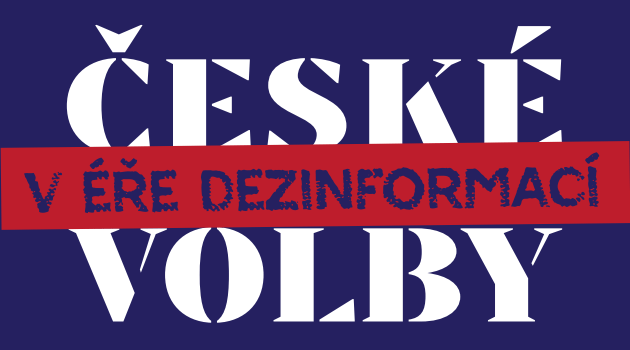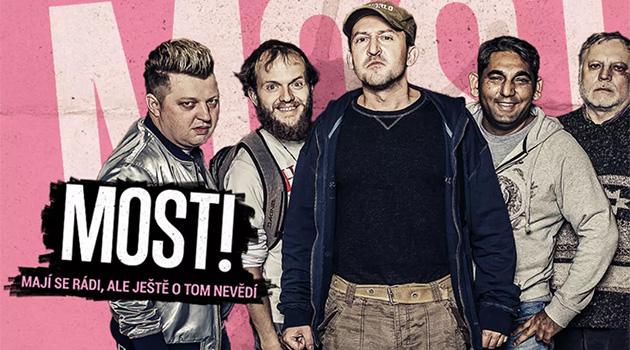Czech experts prepare for disinformation in campaigns for elections to the European Parliament

In association with the upcoming elections to the European Parliament (EP) and in collaboration with the Manipulátoři.cz group, the Prague Security Studies Institute (PSSI) has published an analysis of how myths about the European Union were disseminated on disinformation websites last year. The EU is a favorite subject for conspiracy theorists, with mention of this institution appearing in every 10th piece published last year on the 39 websites analyzed.
Fully one-fifth of those pieces contained at least one of the six most popular myths about the EU that were further analyzed by the study. Among the most popular myths are ones about migration, the “dictatorship” of Brussels, or the alleged hegemony of France and Germany in EU decisions.
The debate about “Czexit” (the Czech Republic leaving the EU) peaked in January 2018 and made just a minimal appearance during the rest of the year. The study worked with the myths that Manipulátoři.cz have collected for their website PoPravdě (“Truth Be Told”).
“Myths, disinformation and half-truths about the EU are disseminated in the Czech environment relatively easily given the low faith of the population in this insitution and their lack of information about it,” says Jonáš Syrovátka, who has mapped the spreading of disinformation about the EU and analyzed it together with colleagues from the PSSI. “Some politicians play a role in this also by frequently contributing to disseminating myths about the EU, increasing the likelihood that those myths will travel from disinformation platforms on the fringes into the mainstream media.”
“Freedom and Direct Democracy” (SPD) representatives are champions at spreading anti-EU myths
The political actors who differentiate themselves the most by spreading myths about the EU are from the SPD. In their public appearances, SPD members have mentioned most of the myths analyzed.
Communist Party of Bohemia and Moravia (KSČM) MPs were also active in this regard. For the other political parties such behavior was rare.
“Personally, I do not have anything against criticizing the EU, that is a legitimate undertaking as long as it is not based on tendentious hoaxes and lies, as we frequently see from the KSČM and SPD politicians,” said Jan Cemper, editor-in-chief of Manipulátoři.cz. The specialized team working for the PoPravdě website will be accumulating and investigating all of the disinformation that appears between now and the elections.
“The findings of the study demonstrate that in the Czech environment, myths associated with the EU are successful, and for that reason it is necessary to pay attention to this phenomenon in the runup to the EP elections. This study is decidedly not the final activity the team is preparing before the elections – we are repeating our monitoring of the news platforms disseminating disinformation before the elections, we will warn of problematic cases, and in collaboration with partners from the V4 countries we will be doing our best to compare the situation in the Czech Republic with the situation in other countries,” Syrovátka said.
“The impact of our activity should not be overestimated, though – it is the candidates and the media who bear the main responsibility for myths about the EU not appearing in their work prior to the elections. We are glad to offer them a helping hand with that,” Syrovátka said.
Website to focus on hoaxes and myths about the EU as well as the campaigns
Manipulátoři.cz will be covering disinformation related to the upcoming EP elections. “There are already many myths about the EU circulating in society that have nothing to do with reality,” the editor-in-chief of Manipulátoři.cz warned.
For the time being, readers of the PoPravdě website are able to find 31 refuted myths there and more will be added as the website follows the ongoing EP campaigns. This is not the first such specialized fact-checking the team has dedicated itself to.
“Our Popravdě project focused last year on the flood of disinformation prior to the presidential elections. It refuted 39 lies about candidate Jiří Drahoš and 15 about candidate Miloš Zeman, aiding with the dissemination of verified information,” said the founder of Manipulátoři.cz, Petr Nutil, who came up with the idea of the PoPravdě project, which is a volunteer effort, last year.
“Our experience shows us that it can be anticipated that a new wave of disinformation, lies and untruths will inevitably arrive with the upcoming elections and it is absolutely certain that it will appear in such a way as to either assist candidates or harm their chances,” Nutil said. The current set of the most popular myths being disseminated about the European Union in Czech can be found here.
